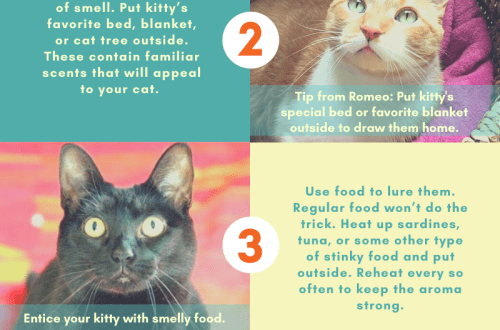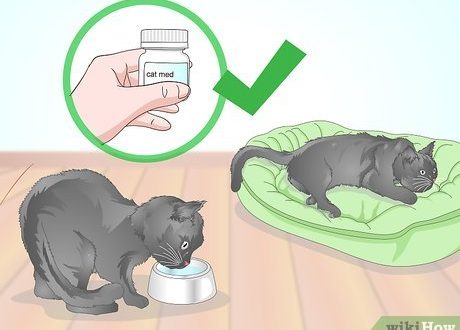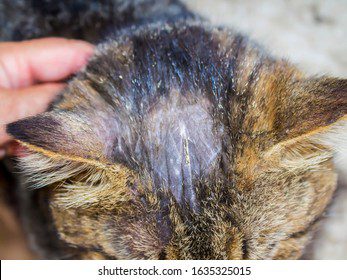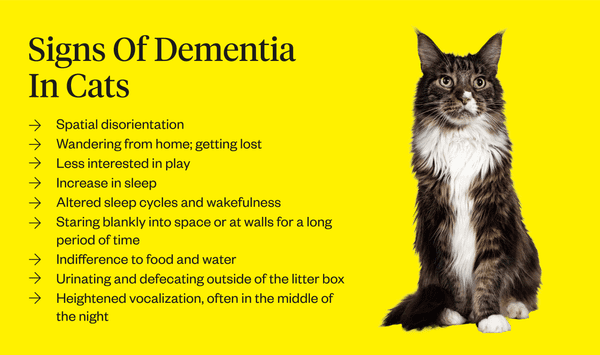
Dementia in a cat: signs, causes and help for a pet
Do cats get dementia? Dementia doesn’t just happen to humans. Cats also suffer from this condition, which is also called cognitive dysfunction syndrome. A cat can develop dementia even if it has been lucky enough to live a happy feline life. It’s all about age. With older cats that appear to be “somewhat confused”, something more specific than “just getting old” may be going on.
Contents
Older cats: a new area of research
Dementia in cats is a complex disease that is sometimes underestimated, untreated, and misunderstood by both veterinarians and owners. Now that pets are living longer than ever, these diagnoses are becoming more common.
Senile insanity in cats presents with signs that resemble those seen in humans with dementia or Alzheimer’s disease. In light of advances in the treatment of dementia in humans, veterinarians are starting to wonder if something can be done about the same problem in cats.
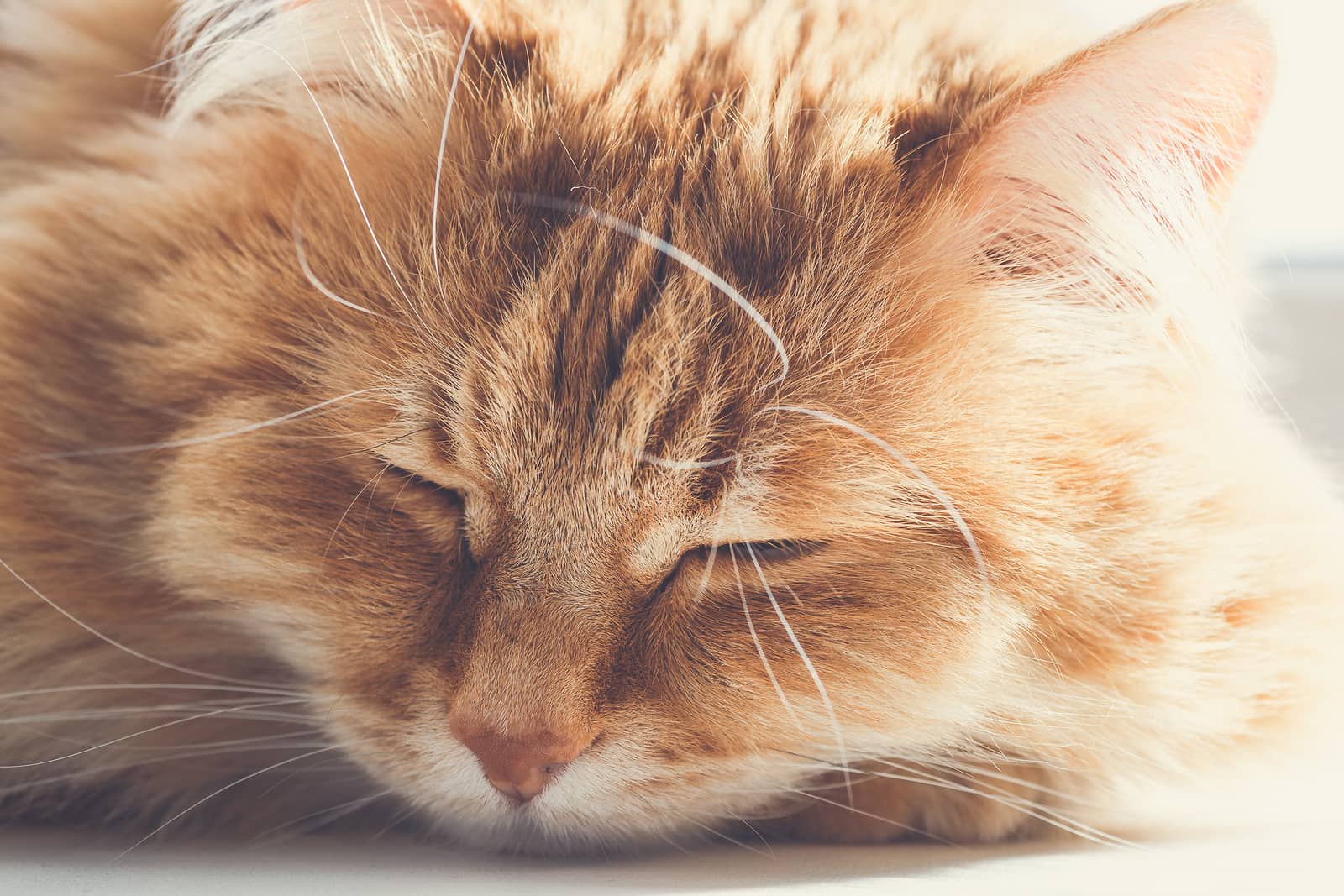
Dementia in cats: signs
Like any other organ, the brain wears out with age. Most often, the brain of an aging cat begins to show signs of weakening between the ages of 10 and 15 years. They can intensify as the disease progresses and become more noticeable.
Dementia in a cat is manifested by the following symptoms:
- general disorientation – staring at the same point on a wall or space for a long time, wandering aimlessly, not understanding signals associated with planned events, such as feeding times;
- a tendency to vagrancy – away from home, if the cat is on the street;
- decreased interest in games;
- deeper and longer sleep;
- a change in the sleep-wake cycle – staying awake all night and sleeping all day, regardless of host activity;
- Decreased interest in food, water, other cats in the home, and interaction with people
- urination and defecation past the tray;
- urination and defecation past the tray;
Dementia in cats is considered particularly difficult, and veterinary science is still looking for ways to correct this condition. Is feline dementia a neurological disease? Is it identical to the process observed in humans? Can it be treated?
Diseases Affecting Dementia in Cats
There are many diseases of old age that can mimic, exacerbate, or overlap with signs of dementia in cats. Since these conditions occur at the same stage of life, cats are often misdiagnosed. Because of this, their dementia may go untreated. Some diseases can exacerbate dementia, as well as hasten its onset and accelerate its course:
Hyperthyroidism
In this disease, which is often diagnosed in older cats, the thyroid gland produces excessive amounts of thyroid hormones as a result of overactivity. Excess thyroid hormone can disrupt the functioning of various organs, including the brain, explain at the Cornell Cat Health Center. For example, cats begin to feel hungry and constantly beg for food. An excess of these hormones can lead to aggressive behavior, increased activity and vocalization, and/or confusion, which is similar in symptoms to dementia. Your veterinarian may order a blood test to check your pet’s thyroid function.
Hypertension
Cats can also have high blood pressure. According to the Cornell Cat Health Center, the most common causes of this are kidney and thyroid disorders. High blood pressure can cause changes in the brain leading to signs of dementia or worsen existing dementia. A veterinarian will usually measure blood pressure to rule out this possibility.
Deafness and decreased sensation
Deaf cats are not aware of the volume of their meow. This may contribute to cognitive dysfunction, as in older people who are prone to disorientation when they become less receptive to auditory cues in the environment. Blindness will contribute to confusion in an older cat in a similar way, usually making it even worse than deafness.
Arthritis or other causes of chronic pain
Pain in a cat can be really difficult to define, because when they feel discomfort, most cats behave very differently from people. They prefer to hide pain – for them it is a survival mechanism. In older cats suffering from pain and dementia, the symptoms are more pronounced. They may resist being petted, appear surly, aggressive, anxious, or loud.
Brain tumors or other neurological conditions
Older cats showing signs of dementia may have a brain tumor. These conditions cause convulsions and collapses, but the symptoms can be a wide variety of abnormal behaviors, including incoordination or response to “invisible” objects. Many other neurological conditions can also show signs similar to those of dementia.
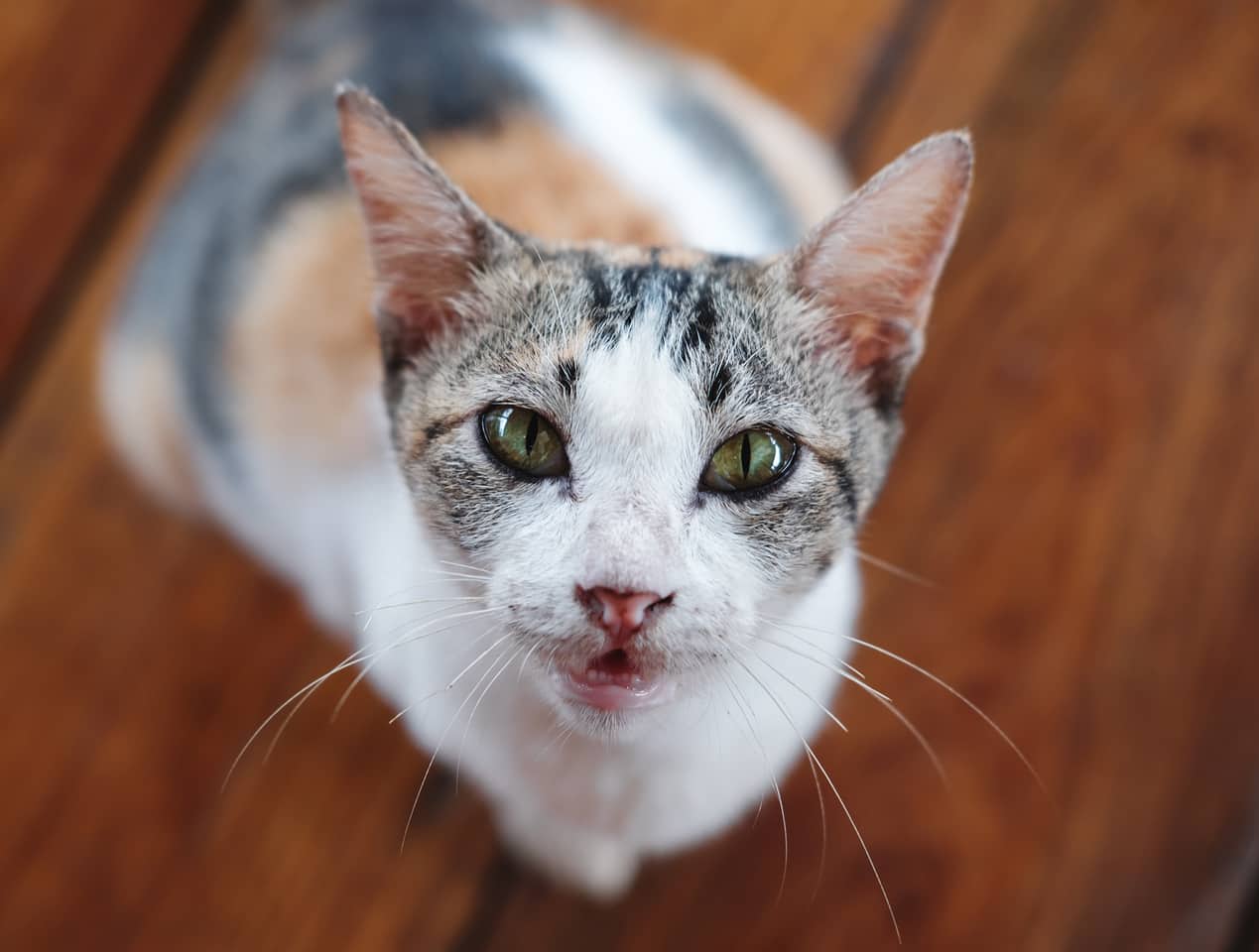
How to help an elderly cat
Any older cat showing signs of dementia should ideally be evaluated for any medical conditions that may mimic or accompany symptoms of dementia. If your cat is suffering from dementia or disorientation, you should try to keep your cat comfortable in the following ways:
- do not let the animal out of the house and do not forget about its tendency to vagrancy;
- maintain a regular feeding schedule and turn on and off home lights to help the cat navigate;
- avoiding significant changes in the family’s life, such as postponing a move or getting a new pet;
- choose food that contains vitamin E and antioxidants, which are important nutrients for brain health;
- Make litter boxes extra-accessible with a ramp or a shallow tray.
- increase the accessibility of the tray using a ramp or replace the tray with a shallow one;
- offer an older cat simple pleasures, such as extra beds and comfortable warm places;
- Visit your veterinarian regularly to monitor your pet’s health.
Any cat showing signs of dementia should be seen by a veterinarian as soon as possible. It’s important for owners to know that their cats don’t “just get old.” Perhaps they are truly sick and need extra care. Determining confusion in a cat is more difficult than in humans, so understanding a pet’s normal behavior is the first and most important step in diagnosing feline dementia.
See also:
Signs of old age in a cat
How to make your home cat-safe
Why is the cat nervous?



